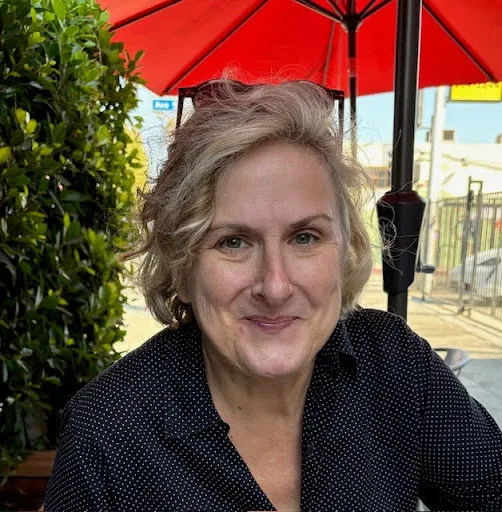Music Department Chair Barbara Milewski Contributes Research, Interview to BBC Podcast

Professor Barbara Milewski, Daniel Underhill Professor of Music and Chair of the Music Department, was recently interviewed about her ongoing research for the BBC’s The Documentary podcast called “Songs from Auschwitz.” The podcast discusses the music made by prisoners in the concentration camp, specifically that of Krystyna Żywulska, a Polish Jewish woman imprisoned for her involvement in the Polish resistance. Żywulska discovered her aptitude for writing poetry and music while in Auschwitz, as the verses she composed in her head spread by word of mouth through the camp. This is the second The Documentary podcast that Professor Milewski has worked on. Her first, “Songs from the Depths of Hell,” can be found here.
I interviewed Professor Milewski about her research and the creation of this podcast, trying to understand both the fascinating and confusing aspects of it, as well as what it is like to do this kind of work. Our full conversation is below.
Tabitha: What is the process of doing this research? What is it like?
Professor Milewski: Painstakingly time consuming. Tracking down materials in archives required traveling to various cities in Poland, Germanyand the US. Finding names and other leads in those archives prompted me to see if survivors were still alive, and if so, where they might be, since WWII caused displacement and mass migration among survivors.
T: What drew you to researching music and poetry in Auschwitz?
M: I was lucky to hear about a need for scholars who could help translate Polish sources for the US Holocaust Memorial Museum in Washington DC before it was opened to the public in the early 1990s. I was tasked with creating an English-language catalog of a remarkable collection of music, art and poetry from the concentration camps that was newly arrived from Poland. When I started reading and listening to the content of the archive (amassed by Aleksander Kulisiewicz who was a Polish survivor of Sachsenhausen) , I knew that disseminating this material would be an important part of my life’s work.
T: What has been the most surprising or amazing thing you have learned through your research?
M: I have learned that great suffering does not necessarily lead humans to bitterness, rage, destruction or despair. I find deep inspiration from my subjects who had suffered profoundly cruel and sustained persecution and who nonetheless turned to helping others, to humor, to reconciliation. They have taught me that dwelling in victimhood is a closed circuit with little to offer future generations.
T: What was it like making the BBC documentary podcast? How did you come to be involved in this podcast?
M: This is my second BBC The Documentary podcast. I was fortunate to have my scholarship noticed by some wonderful scholars and public figures interested in music of the concentration camps. Having my work generously supported by Swarthmore as well as outside grant and fellowship sources means that I have had the privilege of being an active scholar, advising professionals in academia, journalism and broadcast media and contributing research and writing in ways that advance knowledge in the fields I work in.
T: In the podcast you discuss a strange, ironic normalcy in Auschwitz, that life–music, art, poetry–continued. Can you elaborate on that point?
M: Żywulska’s poems and songs reveal that while the systematic murder of European Jewry that took place at Birkenau rightly overshadows all impressions of the Auschwitz-Birkenau complex, the camp as a “concentration camp” nonetheless “lived”. As strange and uncomfortable as it may seem, for those prisoners not slotted for immediate extermination, there was a need to endure. Prisoners who could, turned to visions of future happiness, to life after captivity. In overtly sentimental songs and poems and flashes of humor, we find a record of the optimism and encouragement that prisoners like Żywulska and many others shared with their fellow inmates. This utilitarian, topical song repertoire provides valuable historical insights, revealing how communal singing helped punctuate “free time”. Songs shared within prison walls marked celebrations such as name days and holidays, and at times moments of despair. They document the stories of individuals, relationships and experiences lived in the camp while prisoners daily confronted not only punishing work details, chronic hunger, and illness but also complex human choices and death. Such music making created continuity across the social and geographic ruptures created by wartime, bridging prisoners’ prewar lives with their present-day struggle to survive in the camp.
T: What would you most like people to take away from your research on this topic?
M: This work has the power to take us outside of our daily concerns as we live in freedom, comfort, warmth, nourishment. This awareness does not negate the struggle of the disenfranchised who live among us or outside of our comfortable enclaves in the present (especially in places of higher education such as Swarthmore). Nonetheless it gives us a profound perspective if we are open to it. Ten of millions of people died or were murdered in WWII. Many more had their lives radically upended by the overlapping tragedies of the Holocaust and wartime. I am just one generation removed from that suffering on both sides of my family. The wounds run deep. But the only way forward is through acts of kindness.



